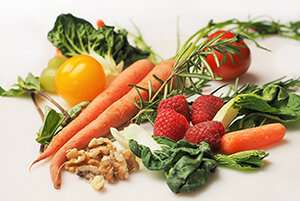Cancer survivors overestimate the quality of their diets, finds first study on the topic

There are 15 million cancer survivors in the United States, and prior research has provided strong evidence that lifestyle interventions, such as diet and physical activity, are especially important in the long-term recovery of cancer survivors. Energy imbalance—when energy expenditure does not equal energy intake- and metabolic changes after cancer treatment can directly affect the risk of cancer relapse, progression, and mortality, making it critical for cancer patients and survivors to accurately estimate their dietary intake.
However, new research led by George Mason University's College of Health and Human Services found that the majority of cancer survivors (56%) tend to overestimate the quality of their diets, increasing the risk of energy imbalance. They report a higher than actual intake of fruits, vegetables, and whole grains, and a lower than actual intake of empty calories.
Dr. Hong Xue led the study published in the European Journal of Clinical Nutrition. "Our study is an important step in the fight against cancer," explains Xue. "Now that we know the difference in perceived and actual diet quality among survivors, we can design tailored interventions to improve diets in this population. We know from earlier studies that this can reduce the risk of cancer relapse and improve long-term outcomes."
Xue and colleagues analyzed data from the National Health and Nutrition Examination Survey (NHANES) from 2005-2014 on 2,361 cancer survivors and 23,114 participants who had not had cancer as a comparison group. They analyzed the nationally representative NHANES data combined with participants' scores on the Healthy Eating Index (HEI) 2010, which measures adherence to dietary recommendations, as a measure of diet quality.
They found that cancer survivors' diet quality has not improved over the past 10 years. Additionally, cancer survivors' diets were generally poor as measured by the HEI, although healthier than the diets reported by the general population.
Older participants, those with higher incomes or levels of education, and Hispanic participants were more likely to overestimate their diet quality. Those who overrated their diet quality also had poorer diets overall than those who under-rated their diet quality.
More information: Hong Xue et al, Discrepancy between perceived diet quality and actual diet quality among US adult cancer survivors, European Journal of Clinical Nutrition (2020). DOI: 10.1038/s41430-020-0619-2


















